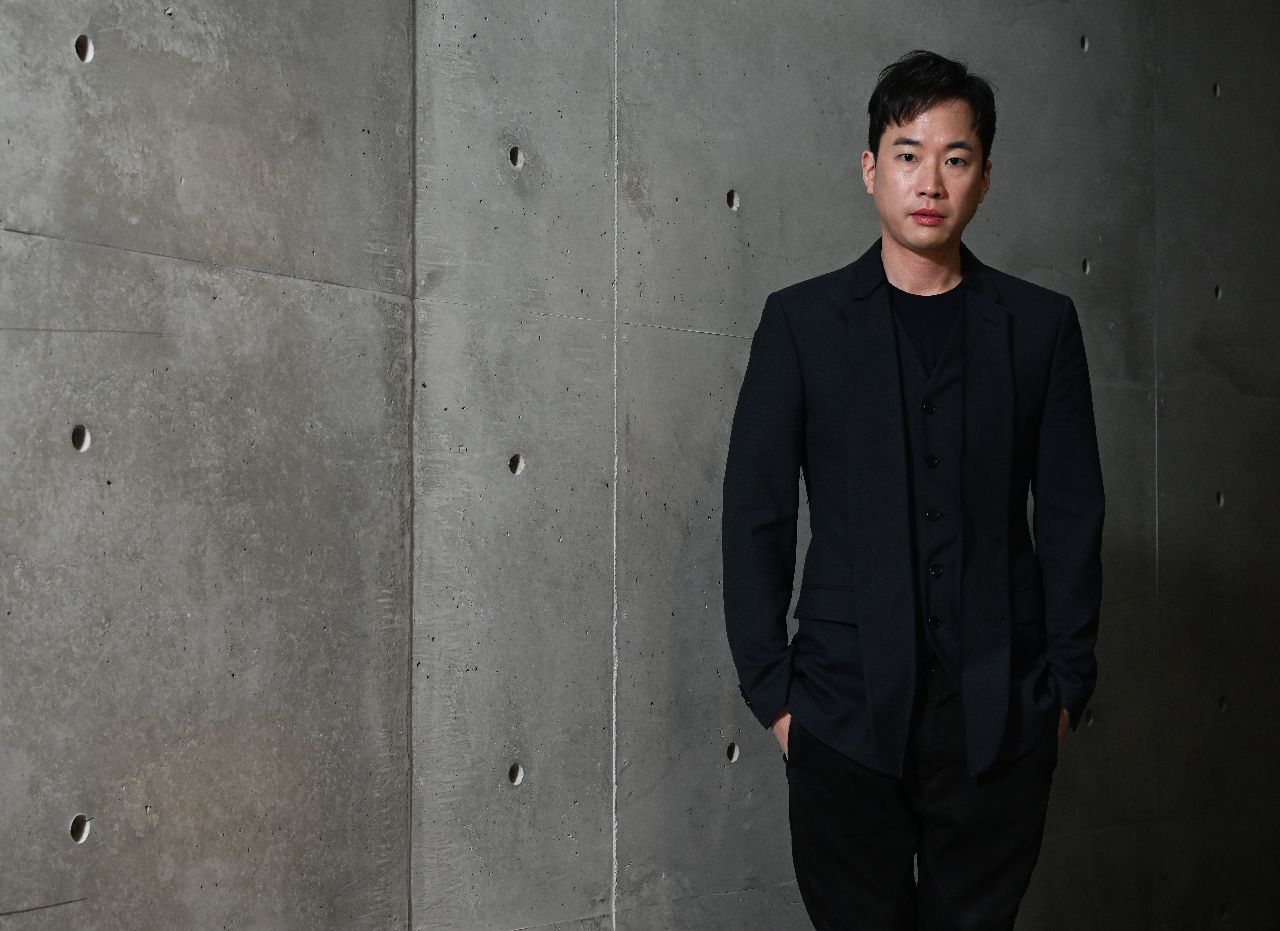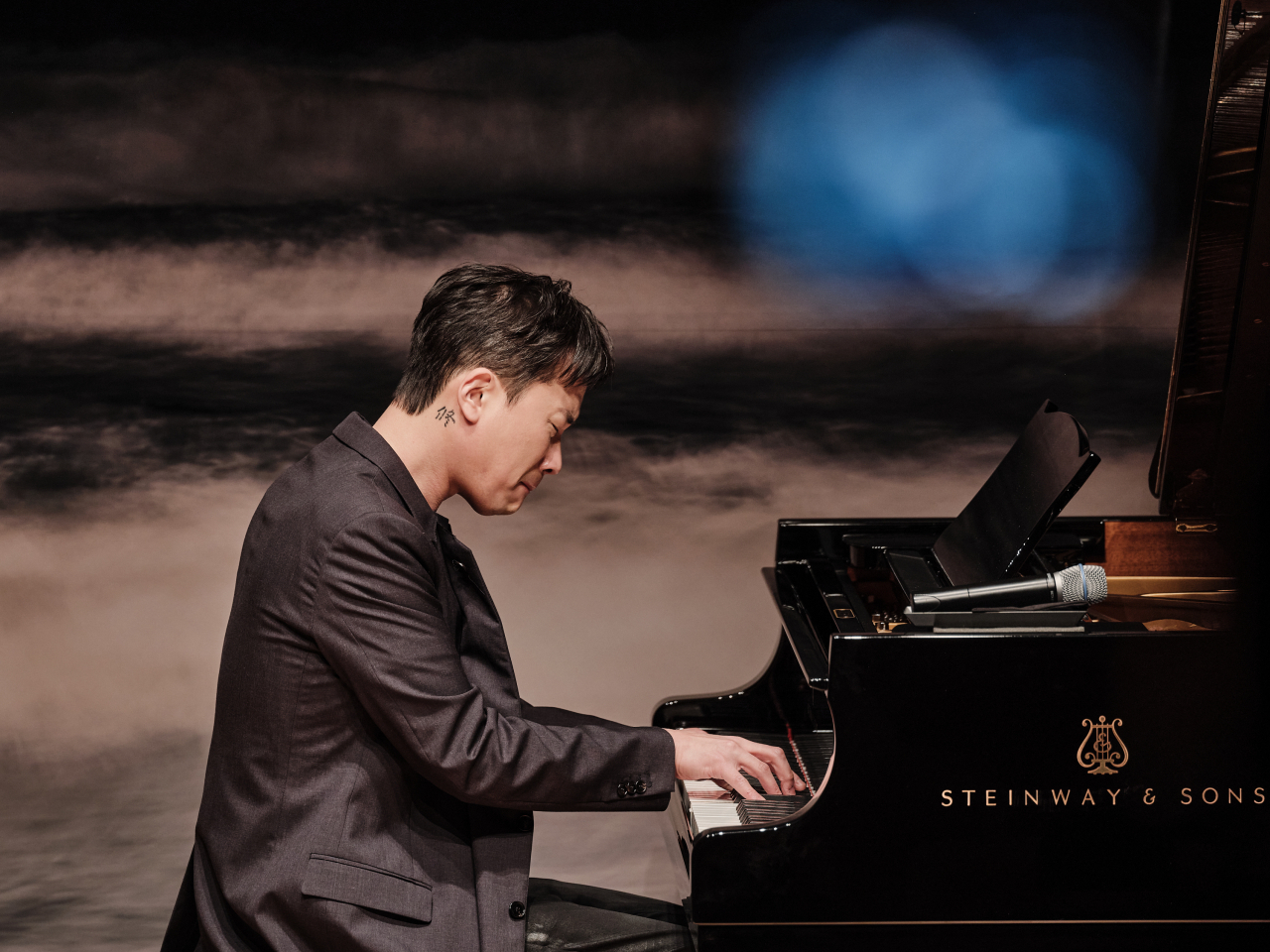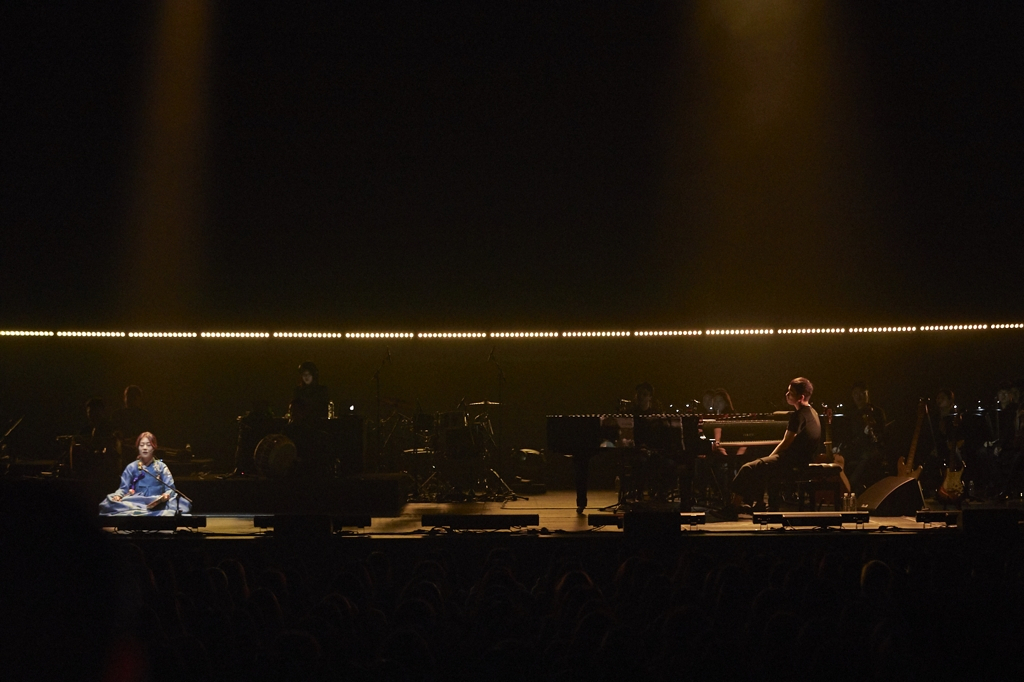[Herald Interview] Jung Jae-il: Breaking barriers beyond international success
The musician’s genre-defying oeuvre is a synthesis of East and West, old and new
By Park Ga-youngPublished : March 8, 2023 - 11:50

Music director, composer and instrumentalist Jung Jae-il gained international recognition with his musical work for critically acclaimed films and TV dramas such as “Okja” (2017), “Parasite” (2019) and “Squid Game" (2021). In Korea, the 41-year-old has been making his mark on the industry for 25 years since his debut at 17.
Jung is currently working with movie director Bong Joon-ho for his next film ‘Mickey 17.’ He recently had the opportunity to work with one of his favorite directors, Hirokazu Kore-eda. Jung's success in the music industry has also led to a signing with Decca Records, a subsidiary of Universal Music Group. Furthermore, Jaap van Zweden, the music director for the New York Philharmonic, has expressed interest in collaborating with Jung in the future.
Despite his accomplishments, Jung is a humble person and he appeared calm and soft-spoken as he talked about his career.
“For me, I had to earn moeny to make a living and there was no other option as a teenager. I could not do part time jobs. Music was all I could do and I was fortunate to make a living with it,” Jung told The Korea Herald during an interview in February.

Artist's artist
Since then, Jung has become an artist's artist, having created and directed numerous chart-topping and award-winning pieces for singers, films, dramas, musicals and more. He has also been commissioned to produce music and perform for iconic events, such as the farewell concert for the South-North Korea Summit in April 2018.
This line of works - writing music for others - is only one part of his life and career.
"When I work, even from my early days, two things are running like parallel train tracks. One is doing music that I can continue to do as a profession, which is not driven just by my artistic ambition but which also allows me to sustain my livelihood until I retire. The other is pursuing the kind of art that I enjoy most without worrying about anything else," Jung said.
Regarding the first type of music, Jung, often referred to as a musical genius by his fellow musicians, said he considers himself a translator and tries his best to remain faithful to his role, morphing music to fit a particular need.
“Basically, all the work undergoes a lot of modification. For example, if Director Bong Joon-ho wanted something specific, such as Handel-like music, it's impossible to write it exactly the same way, so I have to study and my own style inevitably seeps in,” Jung noted. “As we go through various versions, I accumulate something along the way. If the client is satisfied with the result, we settle on that version. If not, we continue to make modifications until it meets their expectations. This cycle of revisions repeats itself until we achieve the desired outcome.”
Music of his own
He has recently had a chance to focus on his own music, on pieces which were not commissioned. "Listen," an album of piano music, was released under the Decca label last month. In the 7-track album, Jung, who says he is more at ease performing than talking, performs his original piano compositions.
Initially, Jung was hesitant about pursuing a solo album, given his track record of successfully assisting other artists and his previous experience of failure in 2003 when he released an album with hopes of becoming a singer-songwriter. However, he ultimately decided to challenge himself again.
""I hesitated attempting this again, but decided to push myself to make music solely for music's sake, based on experiences accumulated over 20 years," he said.

Jung, who was introduced to music at the age of four when he began playing the piano, fell in love with heavy metal music and spent hours practicing the bass guitar -- as much as 17 hours a day.
Eager to play in a band, he took out an ad in a magazine. Adults would call the number, only to be greeted by a pre-pubescent voice who answered the phone. When they realized Jung was only 13, they thought it was a prank.
When he finally made it into a band, he was in middle school and his band mates were high schoolers. Nevertheless, they became life-long friends, including Jang Min-seung, who, in 2020, co-produced "Round and Around," an audio-visual project that reflects on the significance of the Gwangju Uprising of May 1980.
Jung debuted as a bassist for the band 'Gigs' consisting of top musicians such as Han Sang-won, Jung Won-young and Lee Juck who were in their 20s and 40s at the time.
However, this didn’t mean that Jung became an instant star.
"In my twenties, I had to work really hard because I was relatively unknown and it was also before my military service. As a result, I was unable to participate in long-term projects, and had to work day in and day out while also satisfying my intellectual curiosity. This often required me to pull all-nighters, which was physically demanding," Jung said.
"I sometimes think that I’m living off the experiences from those times of self-exploration through music, film and other types of performances," Jung said.
While he has been influenced by many artists throughout his career, whether he was aware of it or not, both directly and indirectly, one life-altering experience he does recall was watching German dancer Philippine "Pina" Bausch perform in 2000. It was an eye-opening experience for a 19-year-old who had known nothing but music.
“From then on, I started living with the idea that there are so many beautiful things in the world, so music can't be everything in life,” Jung said, adding that he now loves dance so much that he sometime wonders if he chose the wrong profession.
A year after that enlightening moment, Jung had a chance to incorporate a choreographed routine into his performance -- combining his childhood passion with his newfound appreciation of visual representations of music.
Since then, he has been collaborating in various genres such as theater, dance, Korean traditional music, jazz and film.

Serendipitous fusion
What turns his experiences and influences into something unique is his desire to create new things.
“There are strange points that are created when things that are different meet. I'm touched by those points,” Jung said.
He said this when asked about his love for "gugak" -- Korean traditional music. When he encountered the Royal Ancestral Ritual and its music for the first time at Jongmyo, the other-worldly sounds shocked him and sent him studying and discovering other forms of Korean traditional music such as "pansori (musical storytelling)," "samulnori (percussion quartet)" and music used for "gut (shamanistic ritual that involves music, dance, and offerings to the spirits)."
Jung described pansori as a one-person opera that delivers sorrowful emotions for three or four hours and gut music as being deeply rooted in Korean culture.
“There is so much beautiful music but I couldn’t do gugak myself so I wanted to take a new approach, combining Western and Korean styles -- as this traditional music can be the language of contemporary times,” Jung said.








![[Kim Seong-kon] Democracy and the future of South Korea](http://res.heraldm.com/phpwas/restmb_idxmake.php?idx=644&simg=/content/image/2024/04/16/20240416050802_0.jpg&u=)








![[KH Explains] Hyundai's full hybrid edge to pay off amid slow transition to pure EVs](http://res.heraldm.com/phpwas/restmb_idxmake.php?idx=652&simg=/content/image/2024/04/18/20240418050645_0.jpg&u=20240418181020)

![[Today’s K-pop] Zico drops snippet of collaboration with Jennie](http://res.heraldm.com/phpwas/restmb_idxmake.php?idx=642&simg=/content/image/2024/04/18/20240418050702_0.jpg&u=)